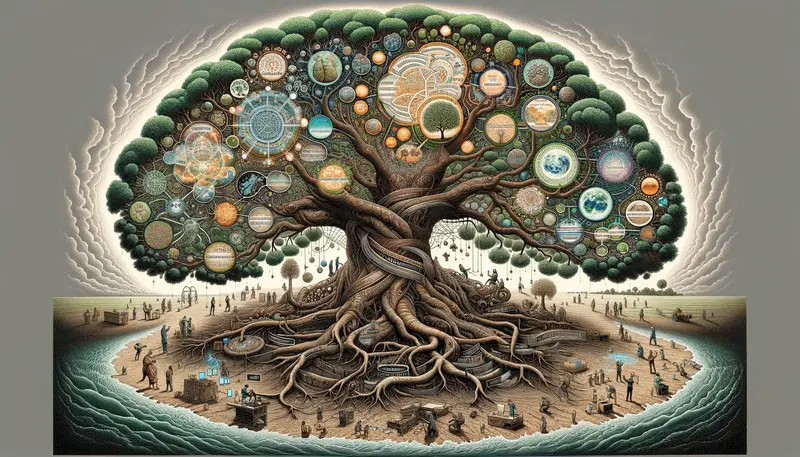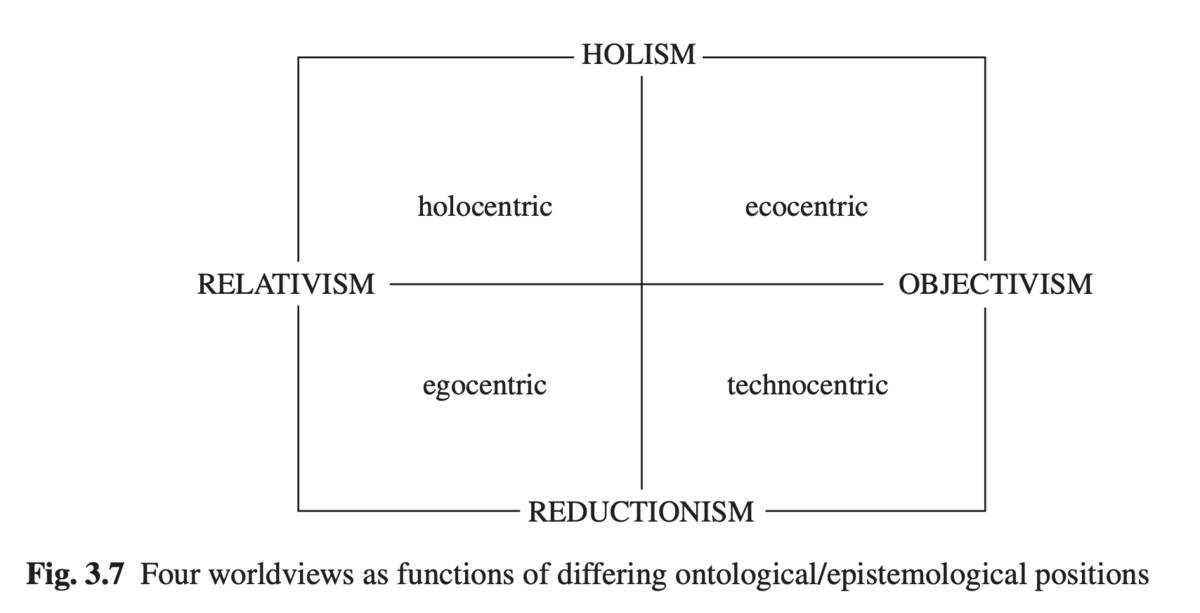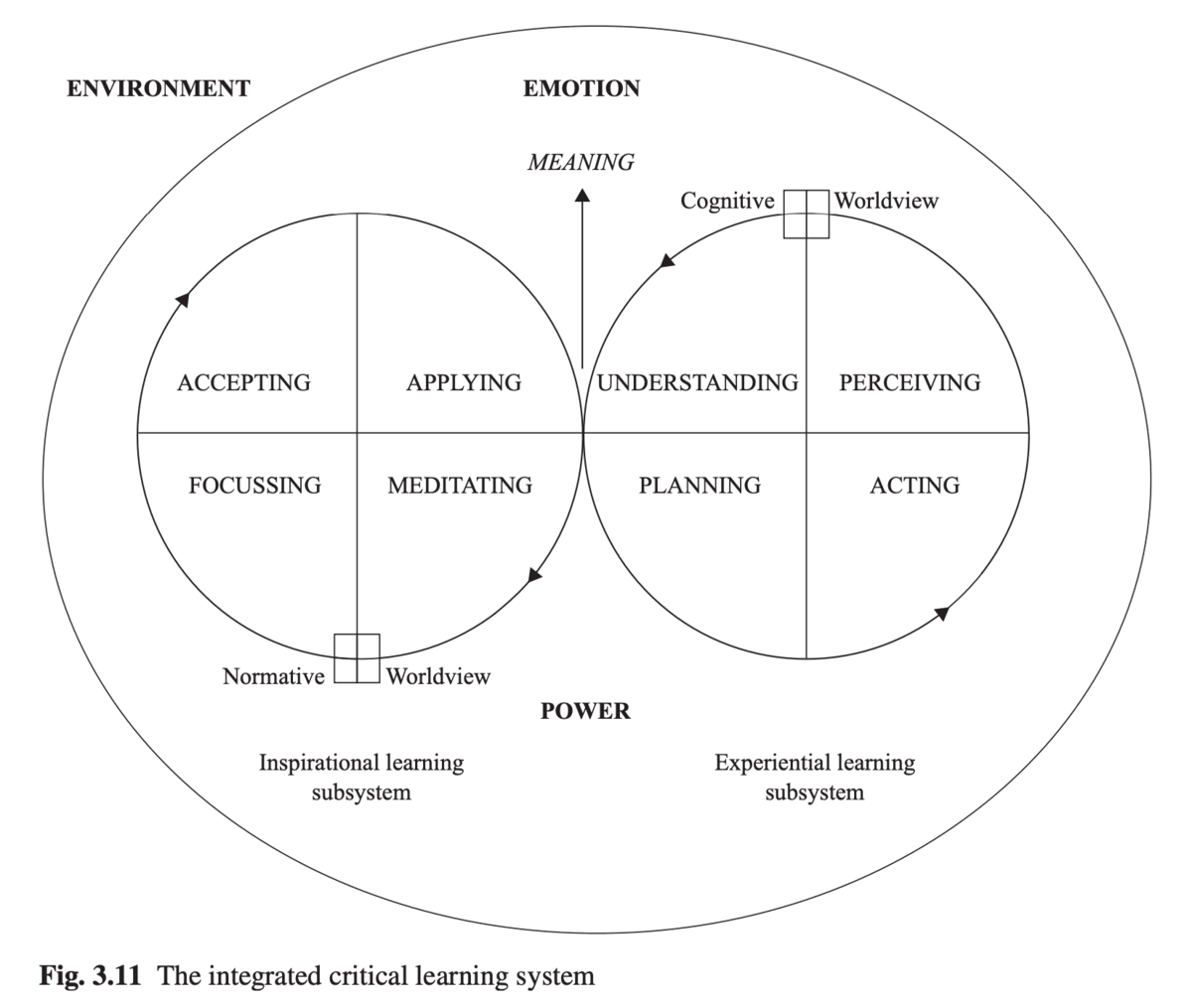TB872: Choosing between CSLS and CoPs
Note: this is a post reflecting on one of the modules of my MSc in Systems Thinking in Practice. You can see all of the related posts in this category.
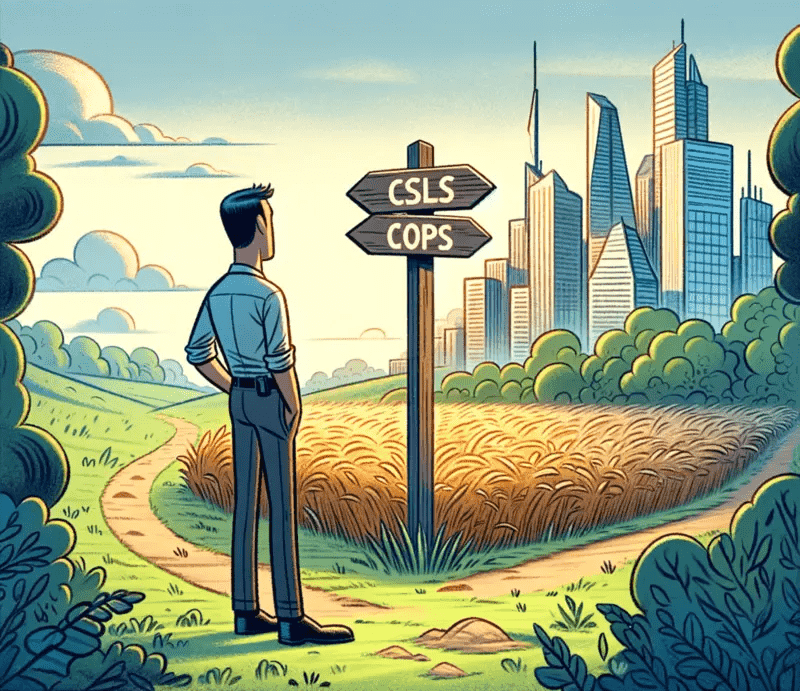
For my End of Module Assessment (EMA) I have to choose between using two traditions. One is Critical Social Learning Systems (CSLS) and the other is Communities of Practice (CoPs), with the CoPs being familiar, and CSLS being new to me as of studying this module.
I’m choosing CSLS instead of CoPs for my EMA inquiry, for three reasons:
- Familiarity / novelty — as I’ve already mentioned, I’m new to CSLS, so I’m interested in learning more about it. This, after all, is the whole point of self-funding this MSc in Systems Thinking.
- Relevance — as I’ll explain below, while CoPs tend to focus on the practical application of knowledge and learning in an informal community, CSLS is more about social dynamics and power relations. I feel like the latter is more relevant for my inquiry, as it involves systemic change within Higher Education.
- Challenge — some of what I’m attempting to help change in my inquiry is what some would call a complex situation, or a ‘hybrid matter of concern’ which is messy and global in impact. CSLS seems more suited to this.
Chapter 6 of the course text was written by Richard Bawden specifically for the book (Bawden, 2010). In the introduction to the chapter, he notes that there were five “beliefs or tenets that came to be held collectively” (ibid., p.89) by the faculty at Hawkesbury Agricultural College in Australia, from which CSLS developed:
Bawden (2010, pp.89-90)
- Experience is a critical source of human learning and development
- Such experiential learning is essentially a multi-dimensional, developmental system of cognitive processing by which we make sense out of the world around us as the foundation for the actions that we take as we live our lives in it
- What we learn about the world is markedly influenced both by the way we go about that learning and by the limitations that are imposed by the particular intellectual and moral perspectives (worldviews) that each of us (usually tacitly) adopts through which we ‘filter’ our ‘sense-making’
- Worldview perspectives are themselves capable of development as reflected in transformations of basic value and belief assumptions which are achieved essentially through ‘higher order’, critical cognitive processing
- The ability to act systemically in the world, with an acute appreciation of ‘wholeness’, ‘inter-connectedness’ and ‘emergence’, is a function of particular intellectual and value assumptions concerning the nature of reality, the nature of knowledge and of knowing, and the nature of human nature.
Bawden continues by citing the work of Foucault to talk about “epistemic development,” meaning “the transformation of worldviews” which “involves profound changes to the beliefs that we hold about… the world around us, as well as to the values that we cherish, that together constitute our intellectual and moral ‘sense-making’ frameworks”. We are “abysmally ignorant,” he notes, “of the fact that we even hold to particular epistemes or worldviews” let alone be “conscious of the extent to which they influence the way we live our lives” (Bawden, 2010, p.91).
These worldviews “comprise a set of personal presuppositions” about the following:
(a) the nature of nature (or ontology, philosophically speaking),
Bawden (2010, p.96)
(b) the nature and origins of the universe, of life itself and, especially, of the spiritual essence of mankind (or cosmology),
(c) the nature of knowledge (or epistemology) and
(d) the nature of human nature especially as it relates to motivations, dispositions
and values, especially ethics and aesthetics (or axiology).
In Chapter 3 where Bawden (2010b) goes into depth about Karen Kitchener’s model of cognitive processing. I discussed this in a previous post, but didn’t include the following diagram:
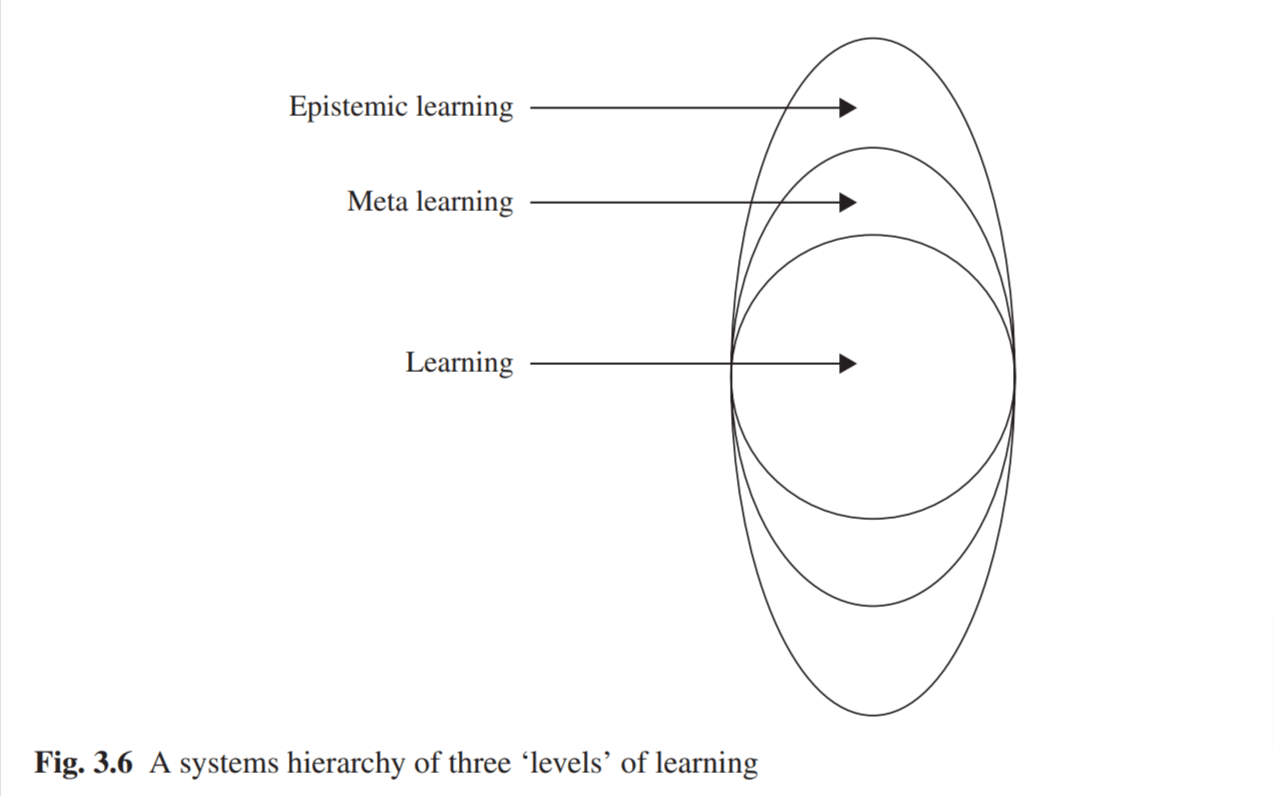
Combined with the experiential model of learning developed by David Kolb, the Hawkesbury group created a framework for developing learning practices that focuses in turn on:
(a) learning about the matter to hand and how to transform that for the better,
Bawden (2010, p.92)
(b) learning about the learning processes that are brought to bear to learn about the matter to hand (meta-learning), and how to improve them, and
(c) learning about the limitations to learning that are imposed by prevailing worldviews (epistemes) (epistemic learning), and how these can be appropriately characterised, challenged and, where indicated, transformed.
In terms of the third of these, the epistemic learning, a critical social learning system is ‘critical’ in three areas (ibid., p.95):
- Of conditions within the environments within it is embedded (and seeks improvement)
- Reflexive (i.e. critically reflective) of its own structure
- Critically conscious of the implications of each boundary judgement (i.e. what and who is included/excluded)
Citing Vickers, who I have written about elsewhere, Bawden talks about appreciative systems, and seeing our lived experiences as a two-stranded braiding of events with ideas. As far as I understand it, CSLS takes a step back from even this, to create a three-stranded braid which also includes worldviews. It is all very well understanding the world by linking ideas (including value judgements) with lived experience, but shared worldviews allow us to take action in the world.
I’m choosing CSLS over CoPs, then, for my inquiry, because of the resonance with Bawden’s claims that “we [are] victims of our own, particular, culturally embedded way of ‘seeing’ what is happening about us” (ibid., p.100). Although he was talking in terms of the climate emergency and “the looming global energy crisis” I can see this as well with the focus of my own inquiry.
Useful resources
This is mainly a note to myself, based on the course materials (The Open University, 2021):
| CSLS | |
|---|---|
| Designing a learning system | Chapter 4 (Woodhill) – sections ‘Institutional design’ and ‘Facilitating institutional design’ Chapter 5 (Ison) – section ‘Social learning systems in practice’ |
| Practitioner (P) | Chapter 3 (Bawden) – sections ‘Worldviews’ and ‘The inspirational subsystem’ Chapter 5 (Ison) – section ‘Becoming aware of our traditions of understanding’ Chapter 6 (Bawden) – section ‘Worldviews and their influence’ |
| Framework of ideas (F) | Chapter 6 (Bawden) – section ‘The nature of critical social learning systems’ Chapter 4 (Woodhill) – section ‘Towards a paradigm of social learning’ |
| Methods (M) | Chapter 3 (Bawden) e.g. the diagrams |
| Situation of concern (S) | Chapter 3 (Bawden) – ‘Genesis’ Chapter 4 (Woodhill) – ‘Introduction’ Chapter 5 (Ison) – ‘Creating the contexts to foster social learning’ |
References
- Bawden, R. (2010). ‘Messy issues, worldviews and systemic competencies’. In Blackmore, C. (ed.) Social learning systems and communities of practice. London: Springer. pp.89-101. Available at: https://doi.org/10.1007/978-1-84996-133-2.
- Bawden, R. (2010b). ‘The community challenge: the learning response’. In Blackmore, C. (ed.) Social learning systems and communities of practice. London: Springer. pp.89-101. Available at: https://doi.org/10.1007/978-1-84996-133-2.
- The Open University. (2021). ‘3.4.1 Making your choice of tradition’, TB872: Managing change with systems thinking in practice. Available at https://learn2.open.ac.uk/mod/oucontent/view.php?id=2171593§ion=3.4.1 (Accessed 1 March 2024).
Image: DALL-E 3

